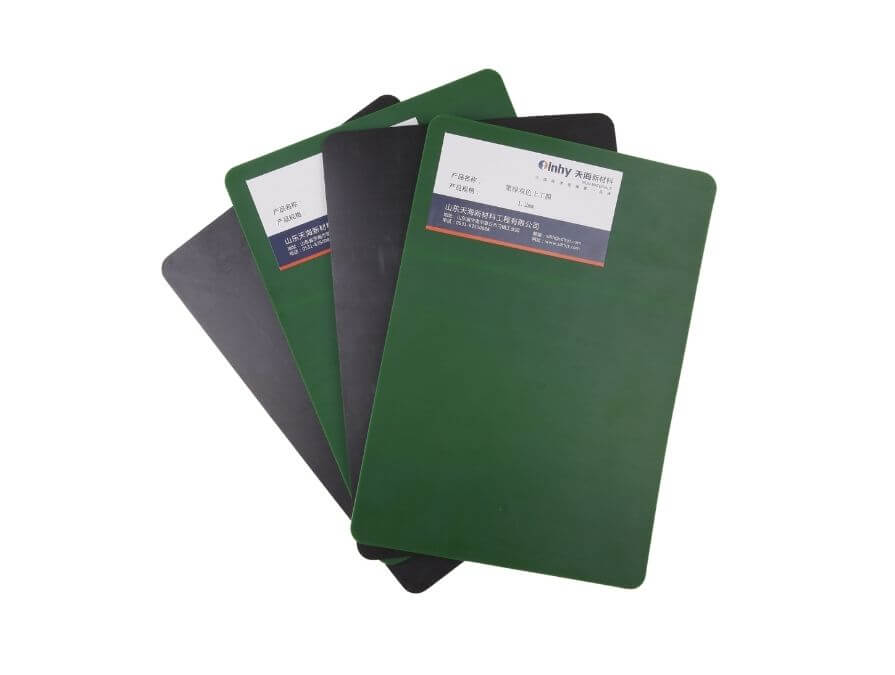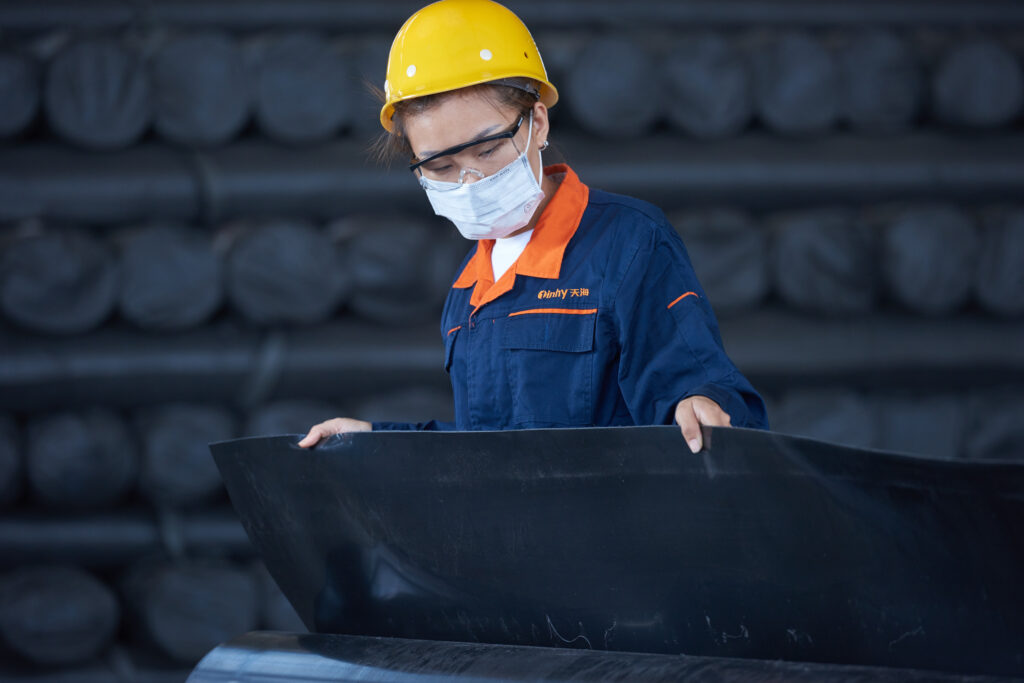Geomembrane has a good waterproof effect and is often used to prevent water penetration and leakage.
What is the waterproof effect of geomembrane?
High anti-seepage performance: The geomembrane is made of polymer materials such as high-density polyethylene (HDPE) or polypropylene (PP), which has excellent anti-seepage performance. These materials have a dense structure and low permeability, which can effectively prevent the penetration of water.
Continuity and stability: Geomembranes can be welded or otherwise joined to form a continuous barrier without seams or breakage. This ensures the continuity of the waterproofing layer and prevents moisture from penetrating through the membrane’s small pores or cracks.
Chemical corrosion resistance: Geomembranes usually have certain acid and alkali resistance and chemical corrosion resistance. This allows the geomembrane to provide a reliable waterproof barrier in environments subject to chemical attack.

Anti-UV performance: High-quality geomembranes are usually added with anti-ultraviolet (UV) agents to improve their anti-ultraviolet aging performance. This helps to prolong the life of the geomembrane and keep it waterproof.
Durability: The geomembrane has a long service life and can provide waterproof function for a long time. High-quality geomembranes are structurally designed and material selected to resist environmental factors such as humidity, temperature changes, and physical stress, maintaining their waterproofing effect.
How to judge the quality of geomembrane?
Material selection: High-quality geomembranes are usually made of polymer materials such as high-density polyethylene (HDPE) or polypropylene (PP). These materials have good barrier properties and durability. Therefore, looking at the material description and certifications of a geomembrane product can provide important clues about its quality.
Thickness and Weight: The thickness and weight of a geomembrane are usually directly related to its mass. Higher thickness and weight generally means a stronger, more durable material. When selecting a geomembrane, you can compare options of different thicknesses and weights and choose the one that better suits your specific project needs.
Physical performance test: The physical performance of geomembrane has a great influence on its quality. Common physical performance tests include tear strength, tensile strength, puncture strength, and aging resistance. Suppliers can be asked to provide relevant test reports, or to know whether the physical properties of the geomembrane meet the required standards.

Project experience and certification: Inquiring about the qualifications and project experience of suppliers and manufacturers can also help to assess the quality of geomembranes. Suppliers with a good reputation and rich experience tend to provide quality and reliable products.
After-sales service and warranty: Knowing whether the supplier provides good after-sales service and product warranty is also an important factor in evaluating the quality of geomembranes. Good after-sales service can provide technical support and ability to solve problems.

